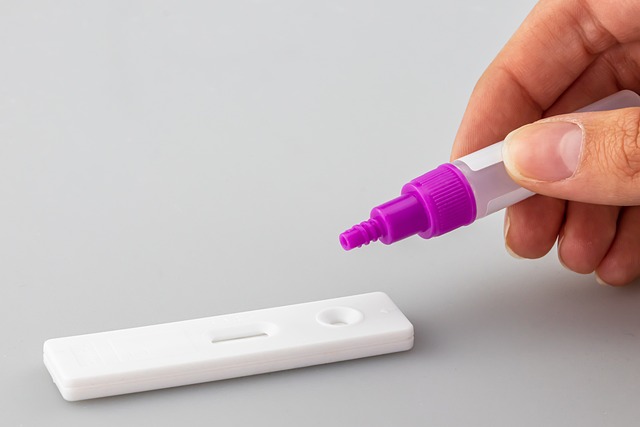Comprehensive Guide to Rhinoplasty Surgery in Ireland
Rhinoplasty surgery is a popular aesthetic procedure for those seeking to enhance their facial harmony and improve nasal functionality. In Ireland, individuals interested in this surgery can explore a variety of options tailored to their specific needs and aesthetic goals. Understanding the procedure, recovery, and potential outcomes is crucial for making informed decisions about rhinoplasty.

What are the aesthetic benefits of rhinoplasty?
Rhinoplasty offers a range of aesthetic benefits that can significantly enhance facial harmony and boost self-confidence. The procedure can address various concerns, such as reducing the size of a prominent nose, refining the nasal tip, straightening a crooked nose, or smoothing out bumps on the bridge. By altering the nose’s shape and size, rhinoplasty can create a more balanced facial profile, improving overall facial symmetry. Additionally, the surgery can correct structural issues that may have resulted from injury or congenital defects, further enhancing both appearance and functionality.
What key considerations should rhinoplasty candidates in Ireland keep in mind?
Candidates for rhinoplasty in Ireland should carefully consider several factors before proceeding with surgery. First and foremost, it’s essential to have realistic expectations about the outcome. While rhinoplasty can significantly improve appearance, results may not be perfect, and there are limitations to what can be achieved. Age is another important consideration, as surgeons typically recommend waiting until facial growth is complete, usually around 15-16 years old for girls and 17-18 for boys.
Health status plays a crucial role in determining candidacy. Ideal candidates should be in good overall health, non-smokers, and free from any conditions that could impair healing. It’s also important to consider the psychological aspects of undergoing cosmetic surgery and ensure that the decision is made for personal reasons rather than external pressures.
What are the various options for rhinoplasty surgery in Ireland?
Ireland offers several options for rhinoplasty surgery, catering to different needs and preferences. The two main surgical approaches are open and closed rhinoplasty. Open rhinoplasty involves making a small incision on the columella (the tissue between the nostrils), providing the surgeon with better visibility and access to the nasal structures. This technique is often preferred for more complex cases or revisions. Closed rhinoplasty, on the other hand, involves incisions made entirely inside the nose, resulting in no visible external scarring and potentially shorter recovery times.
Non-surgical rhinoplasty, often referred to as a “liquid nose job,” is another option gaining popularity in Ireland. This procedure involves using dermal fillers to temporarily alter the nose’s shape without surgery. While not suitable for all cases, it can be an excellent option for minor adjustments or for those not ready for surgical intervention.
How should patients prepare for rhinoplasty surgery in Ireland?
Proper preparation is key to a successful rhinoplasty experience. Patients should start by thoroughly researching and selecting a board-certified plastic surgeon with extensive experience in rhinoplasty. Initial consultations are crucial for discussing goals, assessing candidacy, and understanding the procedure’s risks and benefits.
In the weeks leading up to surgery, patients may be advised to avoid certain medications and supplements that can increase bleeding risk. Smokers will need to quit several weeks before and after the procedure to promote optimal healing. Arranging for post-operative care, including transportation and assistance at home, is also essential. Patients should also prepare their recovery area with necessary items like ice packs, gauze, and prescribed medications.
What can patients expect during recovery from rhinoplasty in Ireland?
Recovery from rhinoplasty in Ireland typically follows a similar timeline to other countries. Immediately after surgery, patients can expect some swelling, bruising, and discomfort. A splint or cast may be applied to protect the nose and maintain its new shape. Most patients can return to work or school within 1-2 weeks, but full recovery can take several months.
During the initial recovery period, patients are advised to sleep with their head elevated, avoid strenuous activities, and follow their surgeon’s instructions for nasal care. Follow-up appointments are crucial for monitoring healing progress and addressing any concerns. It’s important to note that while initial changes are visible once swelling subsides, the final results of rhinoplasty may not be fully apparent for up to a year post-surgery.
What are the typical costs and providers for rhinoplasty in Ireland?
Rhinoplasty costs in Ireland can vary significantly depending on the complexity of the procedure, the surgeon’s experience, and the facility where the surgery is performed. Here’s a general overview of costs and providers:
| Provider | Location | Estimated Cost Range (EUR) |
|---|---|---|
| The Avoca Clinic | Wicklow | 6,000 - 8,000 |
| Beacon Face and Dermatology | Dublin | 7,000 - 10,000 |
| Blackrock Clinic | Dublin | 6,500 - 9,500 |
| River Medical | Dublin | 5,500 - 8,500 |
| Auralia Clinic | Dublin | 6,000 - 9,000 |
Prices, rates, or cost estimates mentioned in this article are based on the latest available information but may change over time. Independent research is advised before making financial decisions.
It’s important to note that while cost is a factor, it should not be the primary consideration when choosing a surgeon. Expertise, qualifications, and patient satisfaction should be prioritized to ensure the best possible outcome.
Rhinoplasty in Ireland offers individuals the opportunity to enhance their appearance and improve nasal function. By understanding the benefits, considerations, options, and recovery process, potential candidates can make informed decisions about pursuing this transformative procedure. As with any surgical intervention, thorough research, realistic expectations, and choosing a qualified surgeon are key to achieving satisfactory results.
This article is for informational purposes only and should not be considered medical advice. Please consult a qualified healthcare professional for personalized guidance and treatment.




